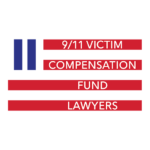Fifteen years after the Sept. 11 attacks, many are still grappling with the devastating physical effects of that tragic day. The destruction left ash and dust in its wake. The toxic material was inhaled by those who worked and lived near the affected sites. And this has led to significant health complications for many individuals, including an increased likelihood of cancer when compared to the general population.
Anyone who experienced or is experiencing such physical symptoms because of 9/11-related events should know of the available resources that can aid them in obtaining screenings and treatment. The World Trade Center Health Program is administered by the federal government and provides medical monitoring, conducts health-related studies, and offers treatment for WTC responders and survivors who were in the New York City disaster area during and immediately following the 9/11 attacks.
What is the relationship between the WTC Health Program and the September 11th Victim Compensation Fund and the Zadroga Act?
The WTC Health Program was created under the James Zadroga 9/11 Health and Compensation Act, a law named after NYPD detective James Zadroga. Mr. Zadroga was a first responder at the WTC. Due to inhalation of unsurpassed amounts of dust and extremely small particles of toxic material, Mr. Zadroga began experiencing respiratory problems that ultimately led to his passing. His story is representative of innumerable other public servants, workers, first responders, residents and students, and the program was formed in an effort to provide treatment for the tens of thousands of people who could experience similar symptoms.
The WTC Health Program services include health checkups and medical treatment for 9/11-related injuries for various groups, including:
- Members of the Fire Department of the City of New York
- First responders, construction workers, sanitation workers
- New York City survivors and certain area workers, office employees, students and residents
- Local homeowners and residents
- Local business owners
- Pentagon and Shanksville, Pennsylvania responders and survivors
To find out more information about these eligible groups, visit here.
The WTC Health Program Today
The WTC Health Program has a nationwide network of clinics with providers across the country for responders and survivors, and as of June 2016, has more than 74,000 members enrolled. Between April 1, 2015 and March 31, 2016, the program delivered more than 30,000 monitoring or screening exams and served nearly 23,000 members with medical treatment including prescription medication coverage.
In addition to medical treatment, the WTC Health Program also collects and analyzes physical and mental health data and conducts research to better understand health conditions related to the attacks. In fiscal year 2015, the program awarded seven new cooperative agreements for research, which will examine topics such as post-traumatic stress disorder, cognitive health, clinical characteristics of WTC sarcoidosis, and childhood health.
Looking Ahead
In 2015, President Obama signed a law to extend funding for the WTC Health Program through 2090 under the Zadroga Act’s reauthorization. This milestone ensures that members can continue to rely on uninterrupted health care from the WTC Health Program.
More Information
If you were in the New York City Exposure Zones (south of Canal Street, Manhattan and/or in Fresh Kills, Staten Island) at any time between September 11, 2001 and May 30, 2002, or at the Pentagon or Shanksville, PA site, whether as a firefighter, first responder, volunteer or survivor, and would like to enroll in the WTC Health Program, visit here.
Once enrolled, you will be invited by the program for a physical exam. Eventually, the World Trade Center Health Program will mail the certification to your home.
Sullivan Papain Block McManus Coffinas & Cannavo PC has a long history with the WTC Health Program and the September 11th Victim Compensation Fund, and our clients have testified alongside its doctors before Congress. If you have questions, you can reach out to us at (800) 962-9954 or via our contact page.
Share On:

